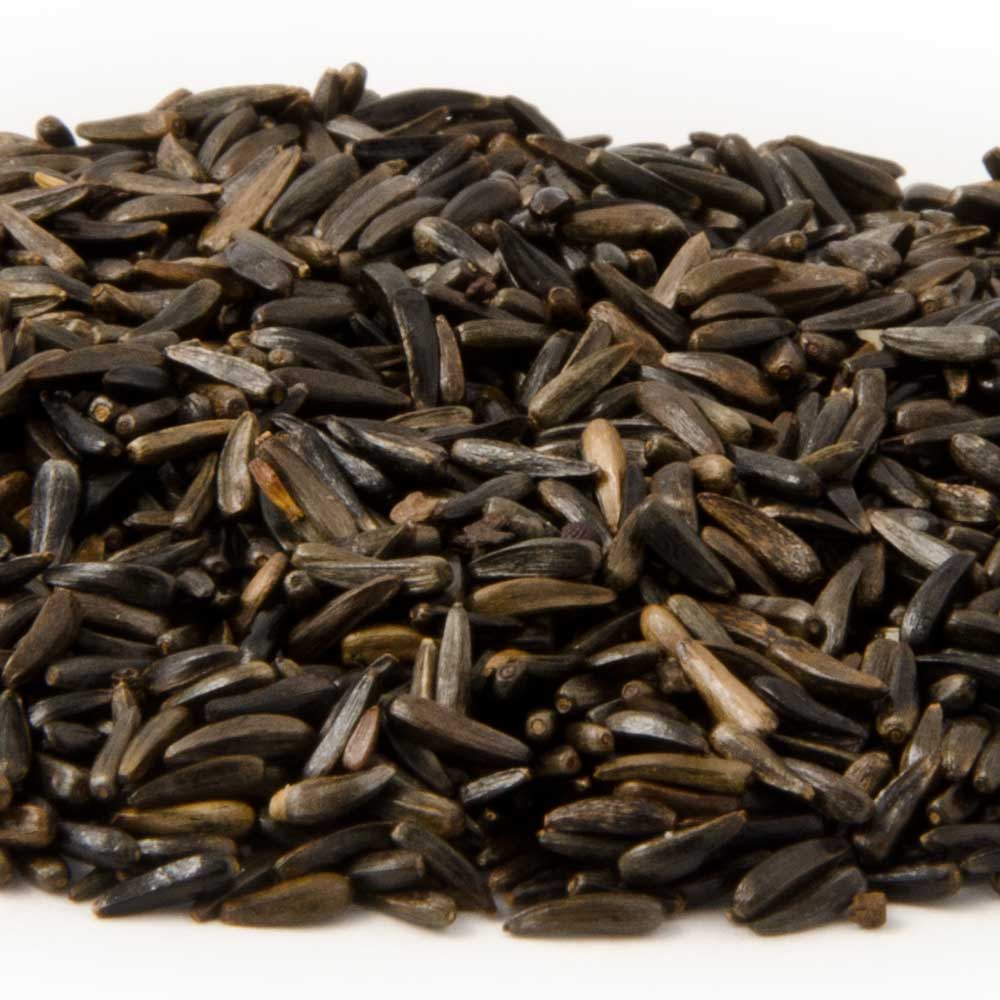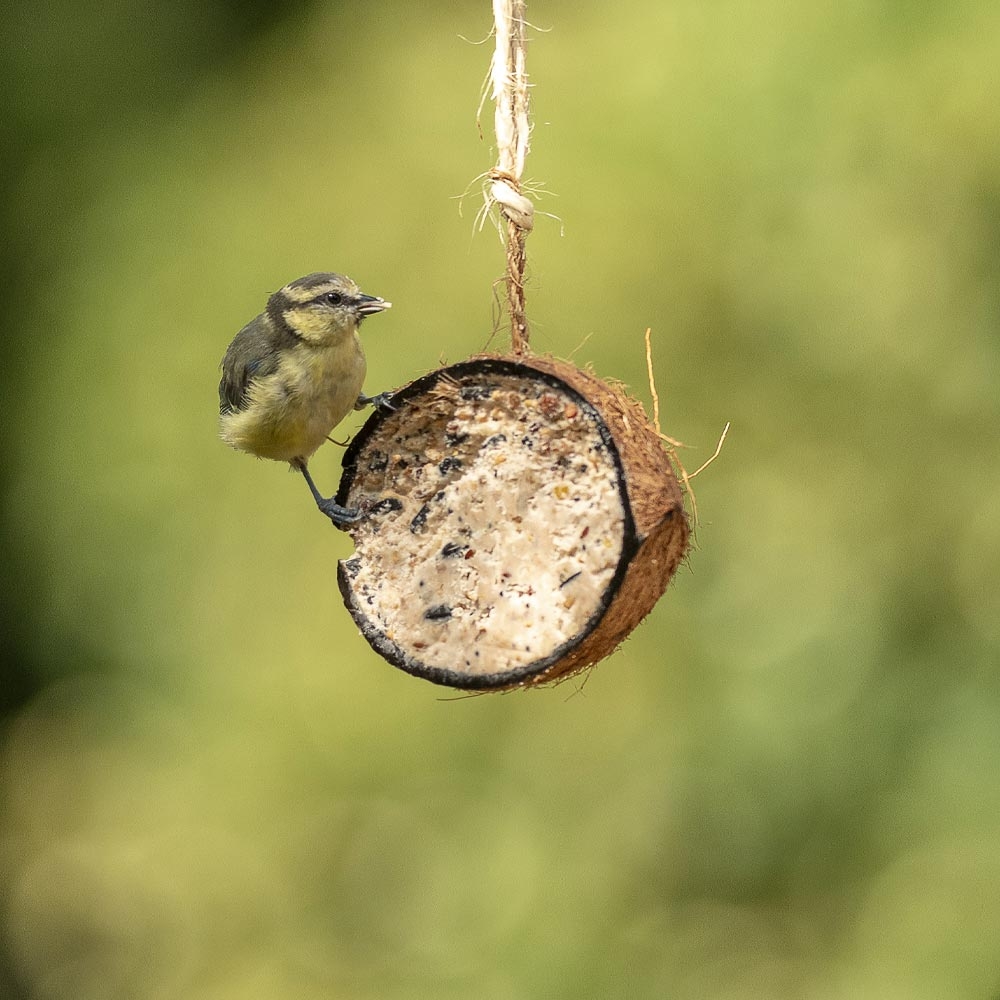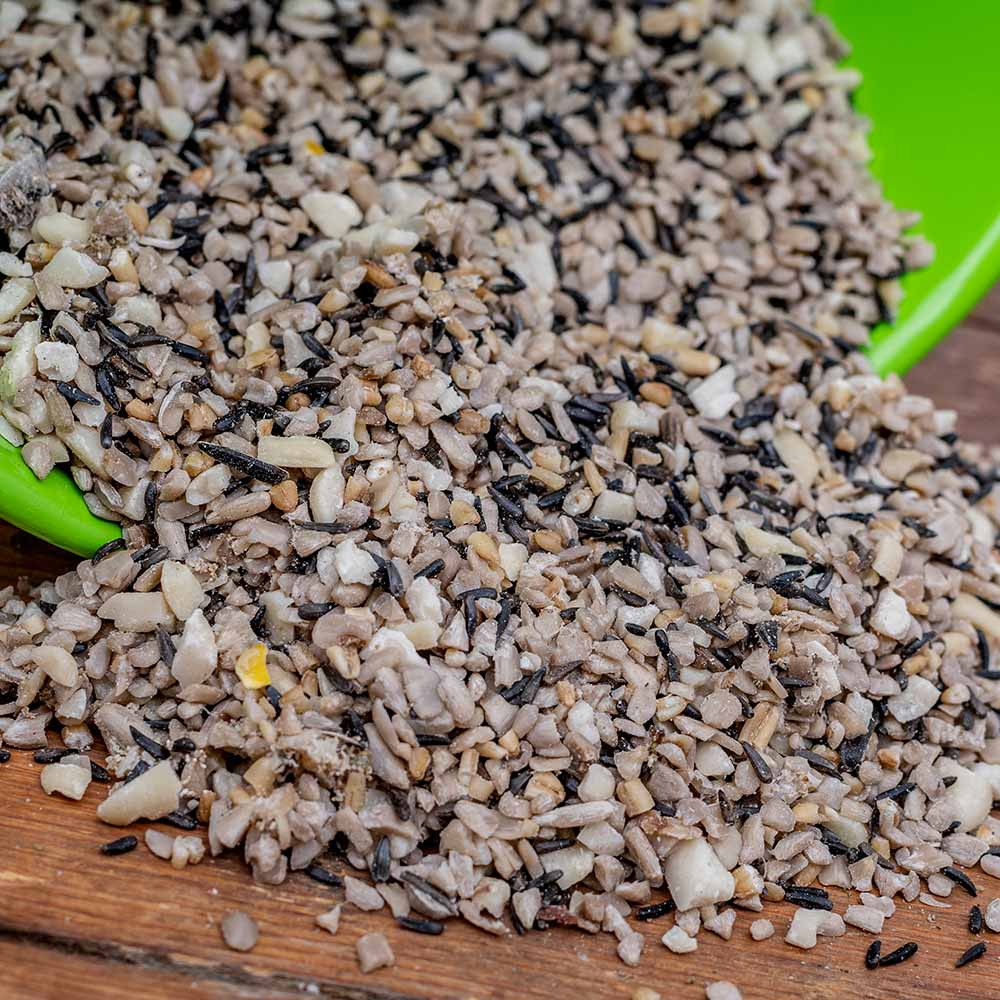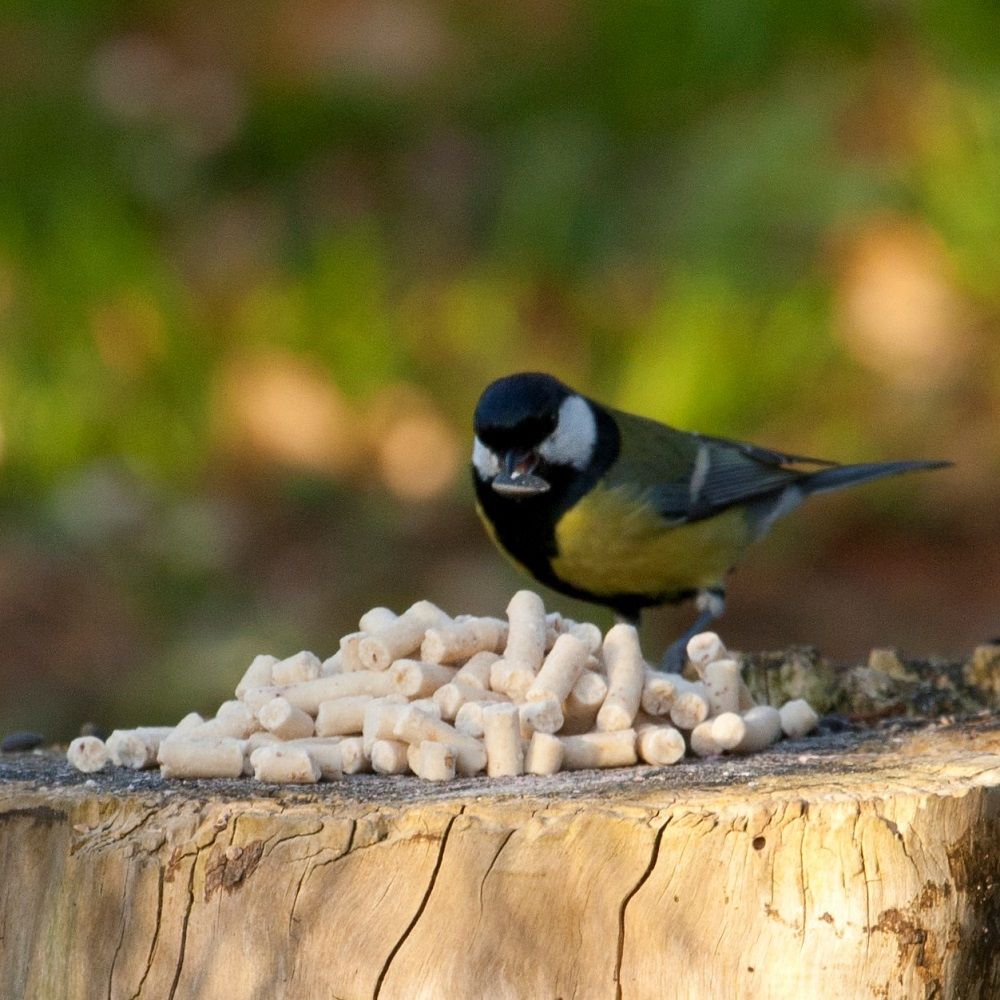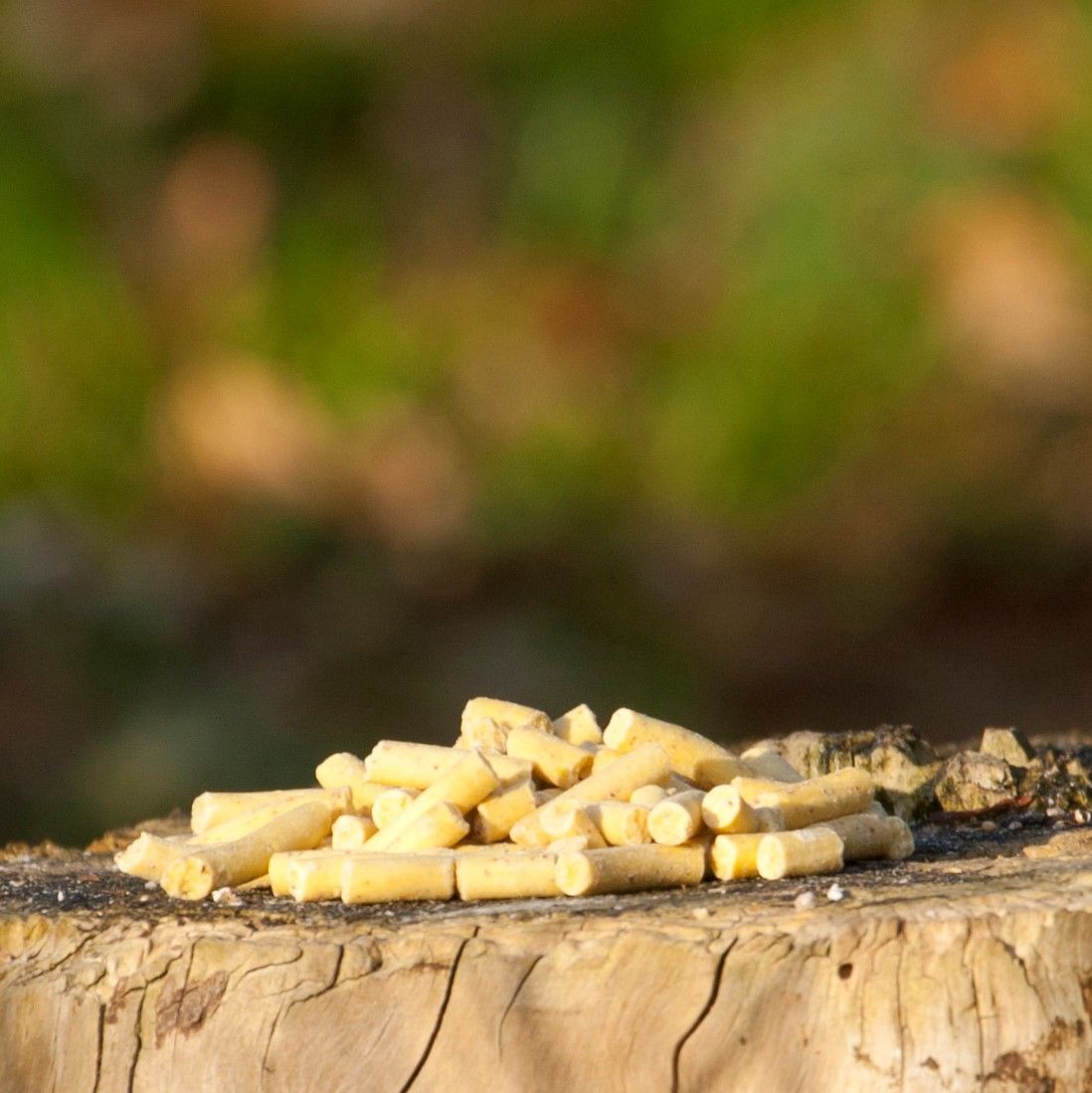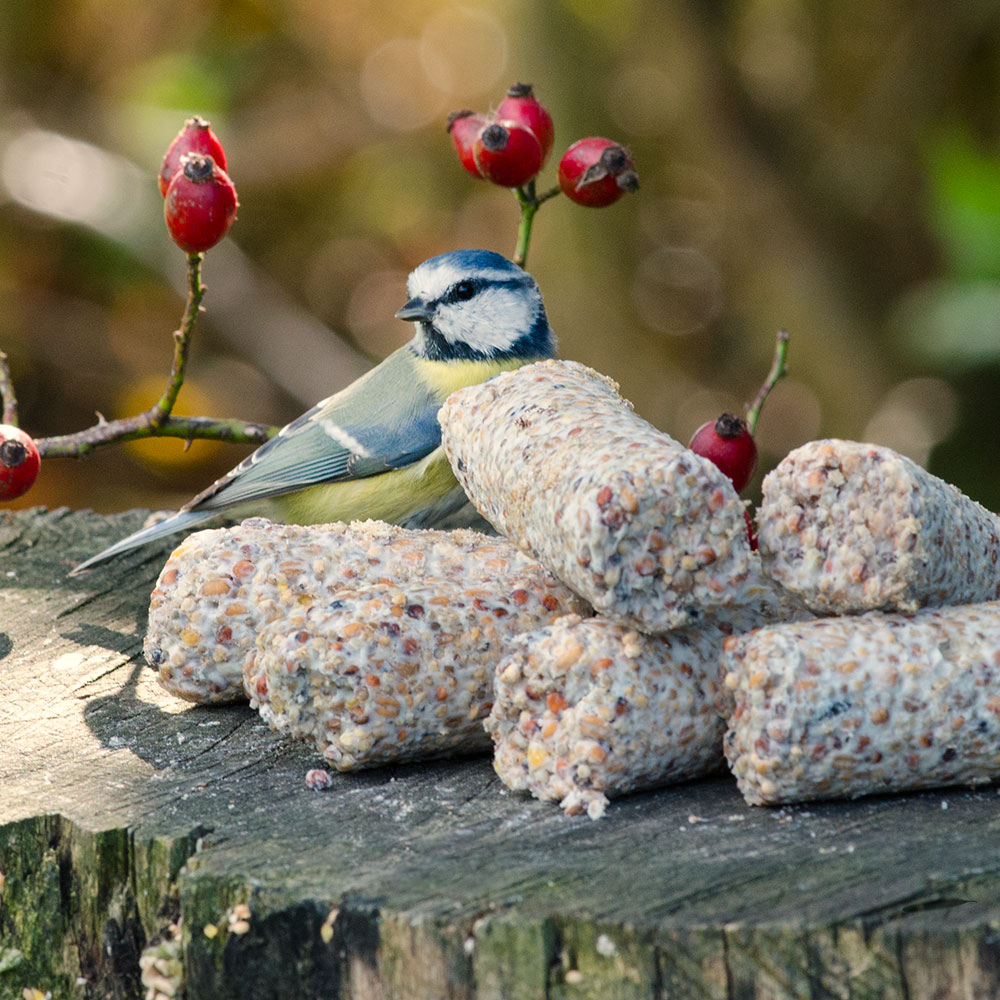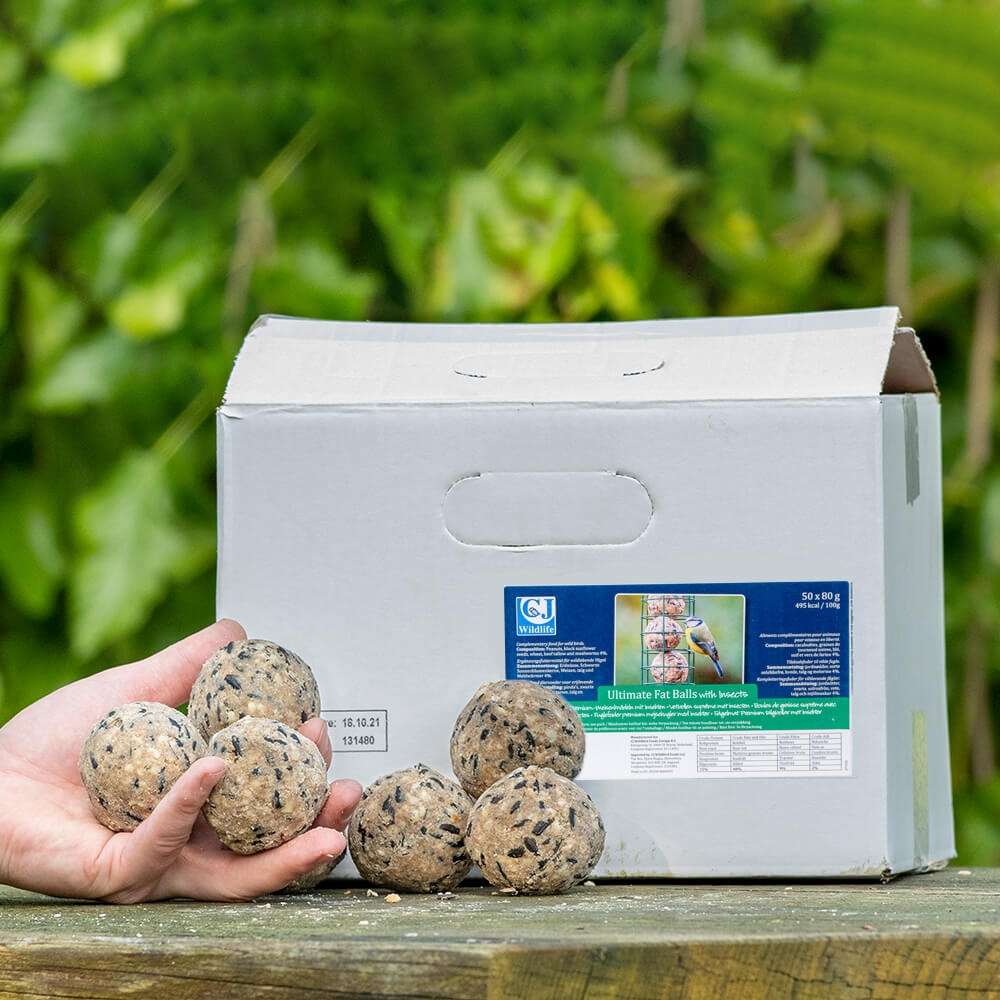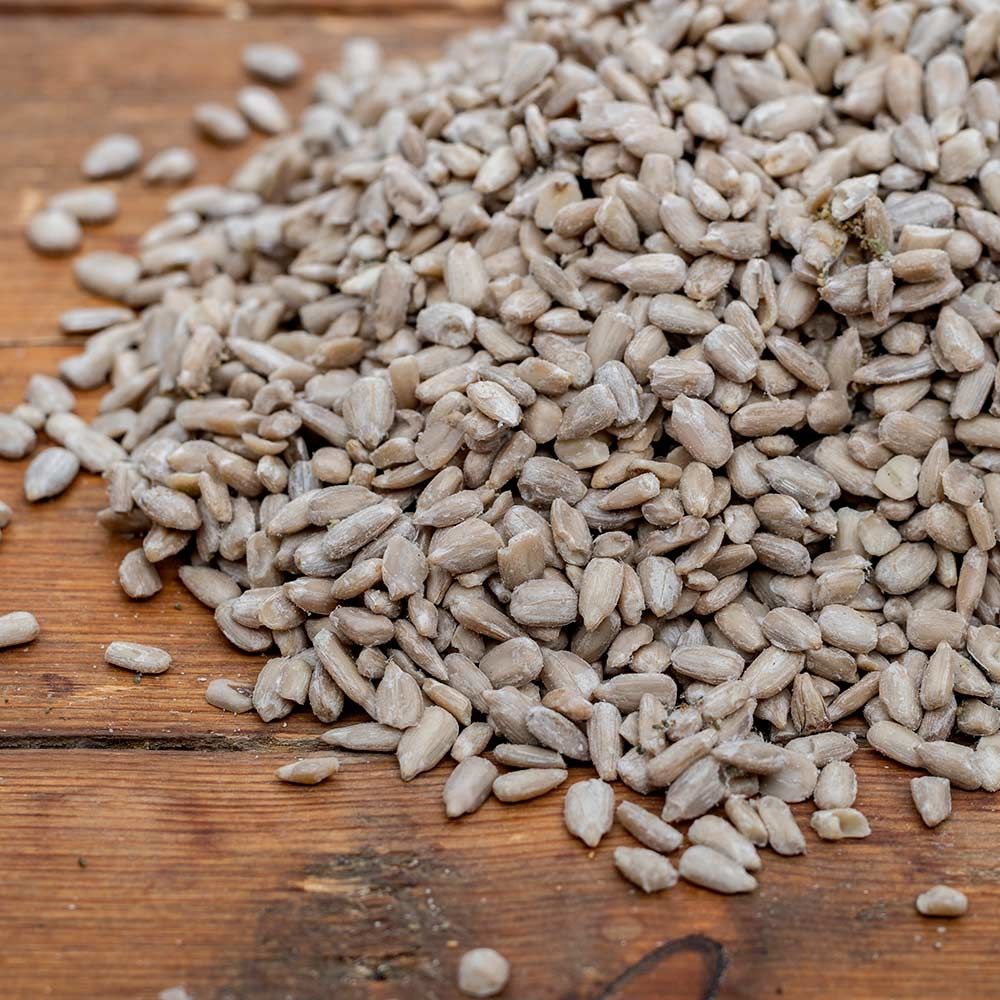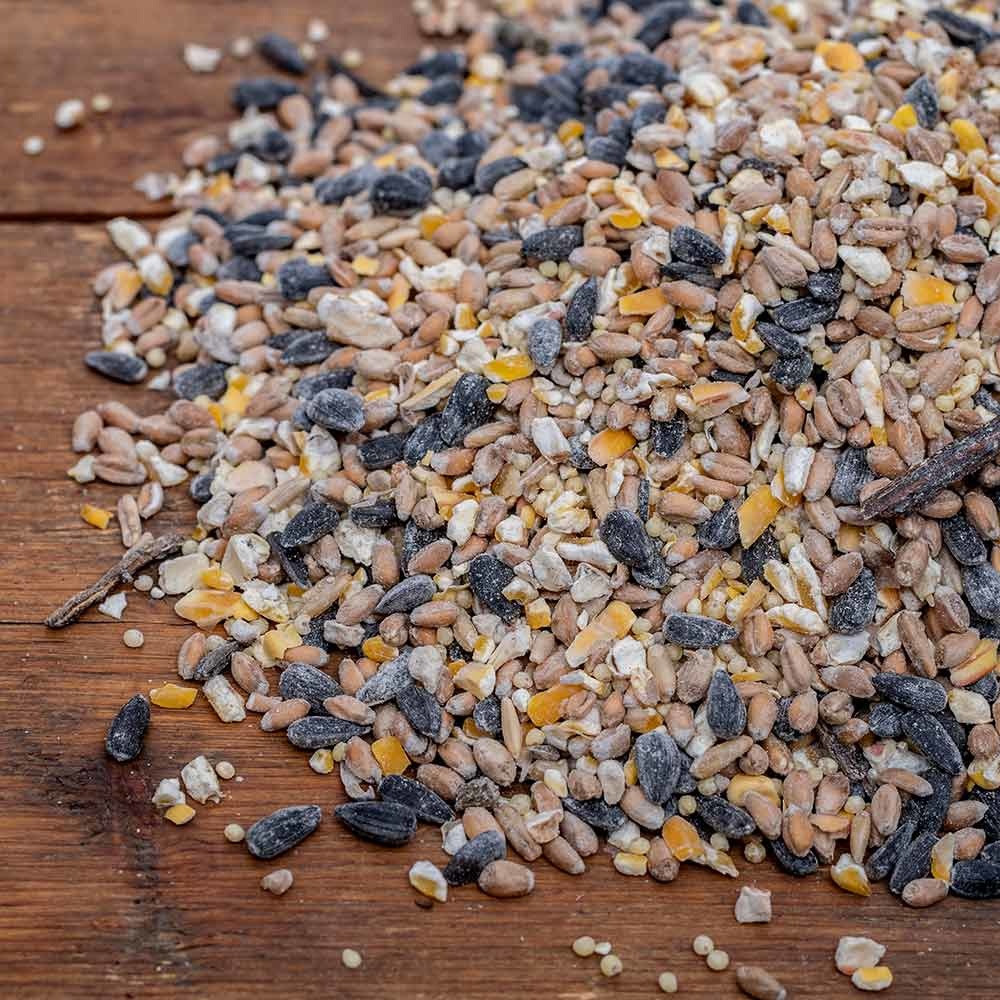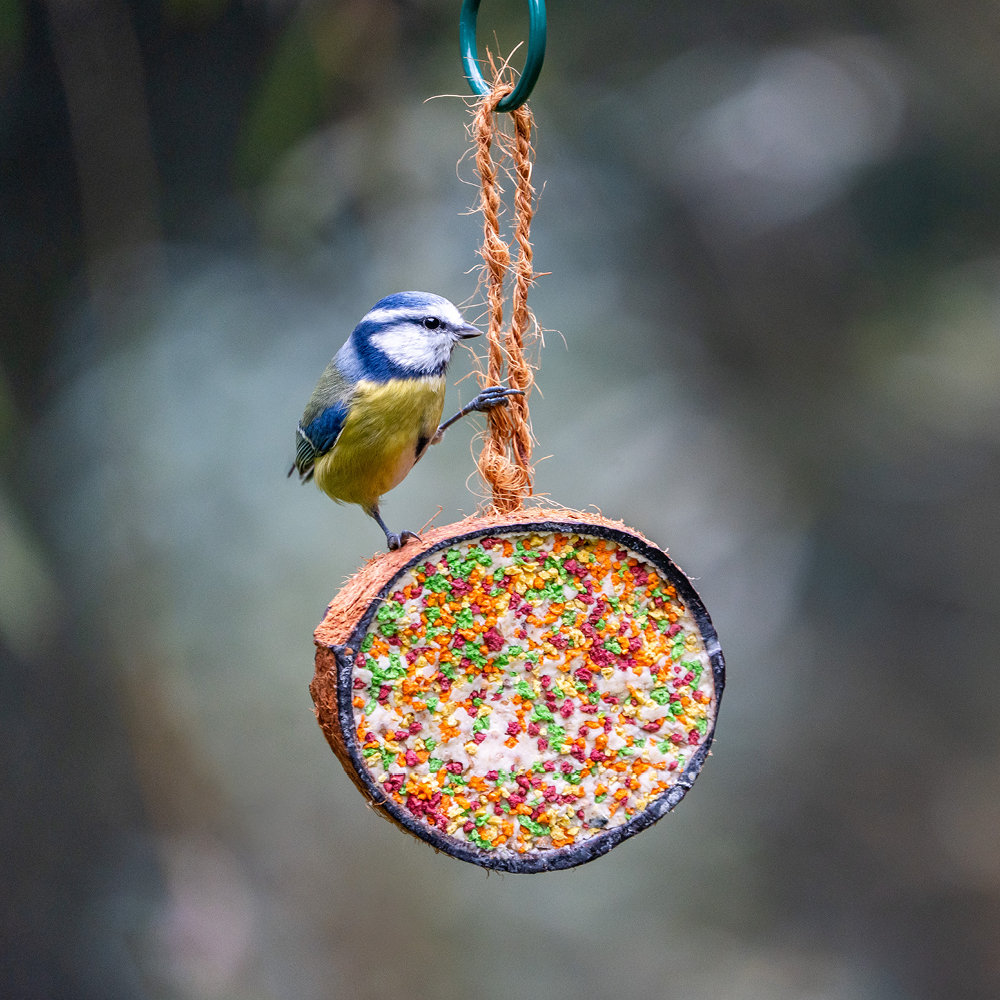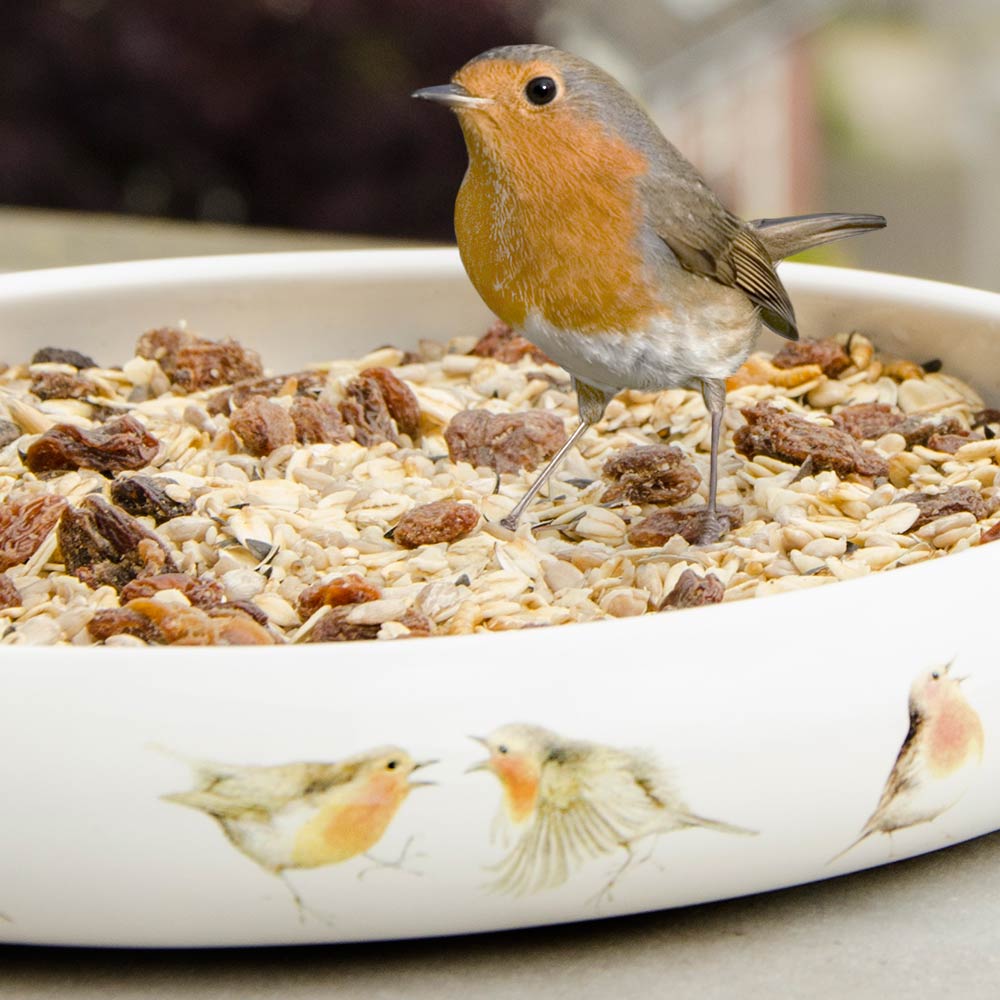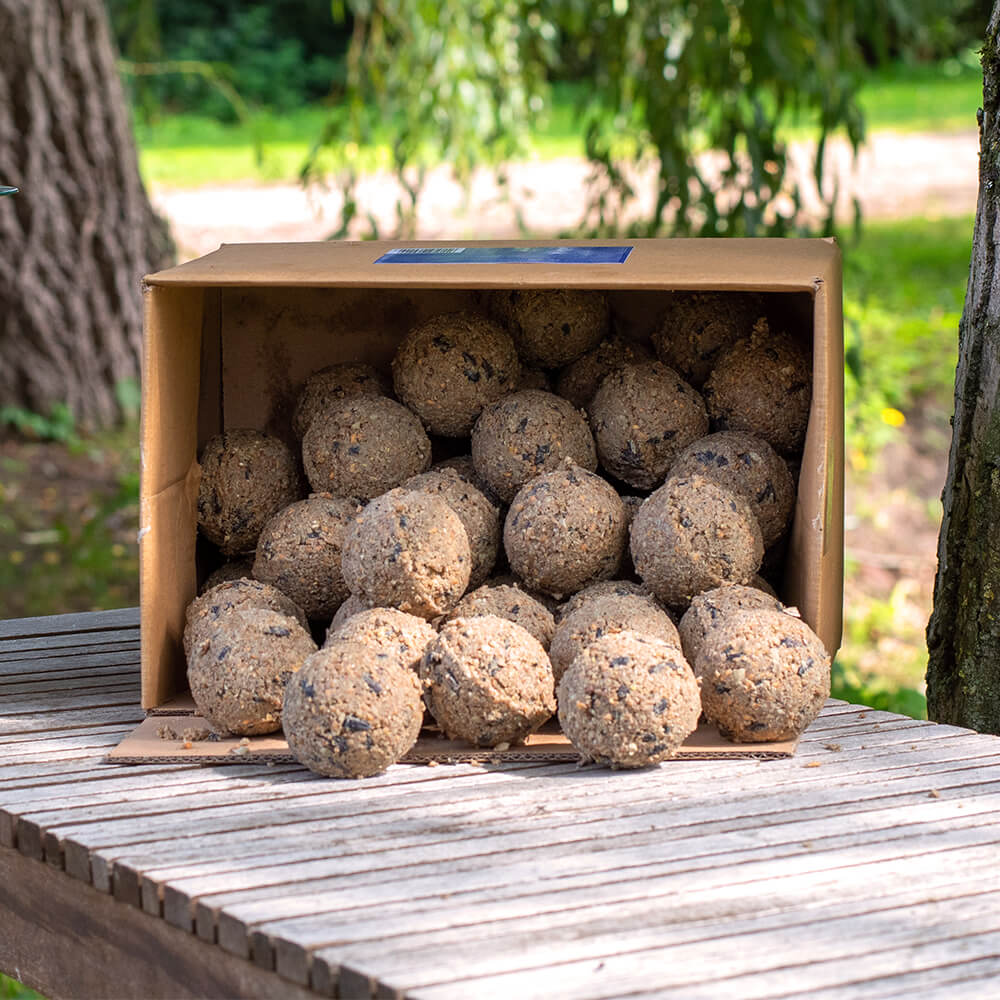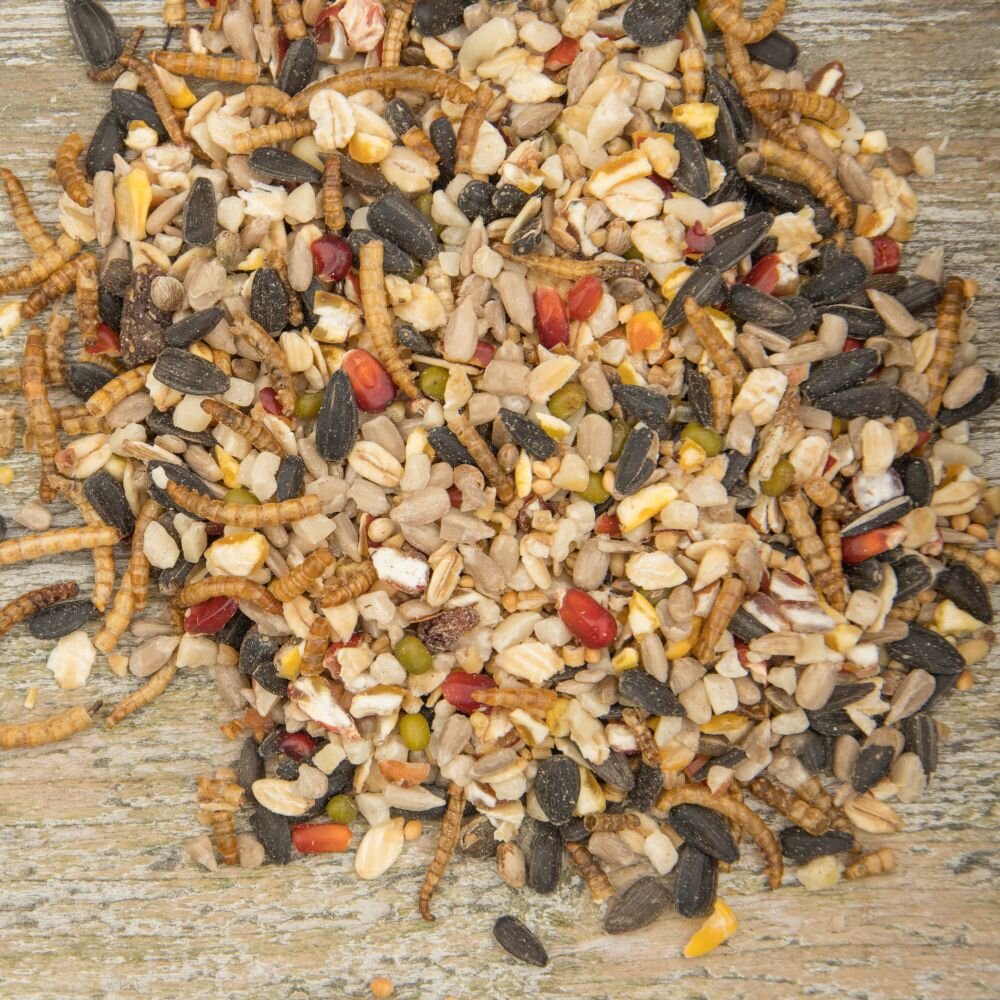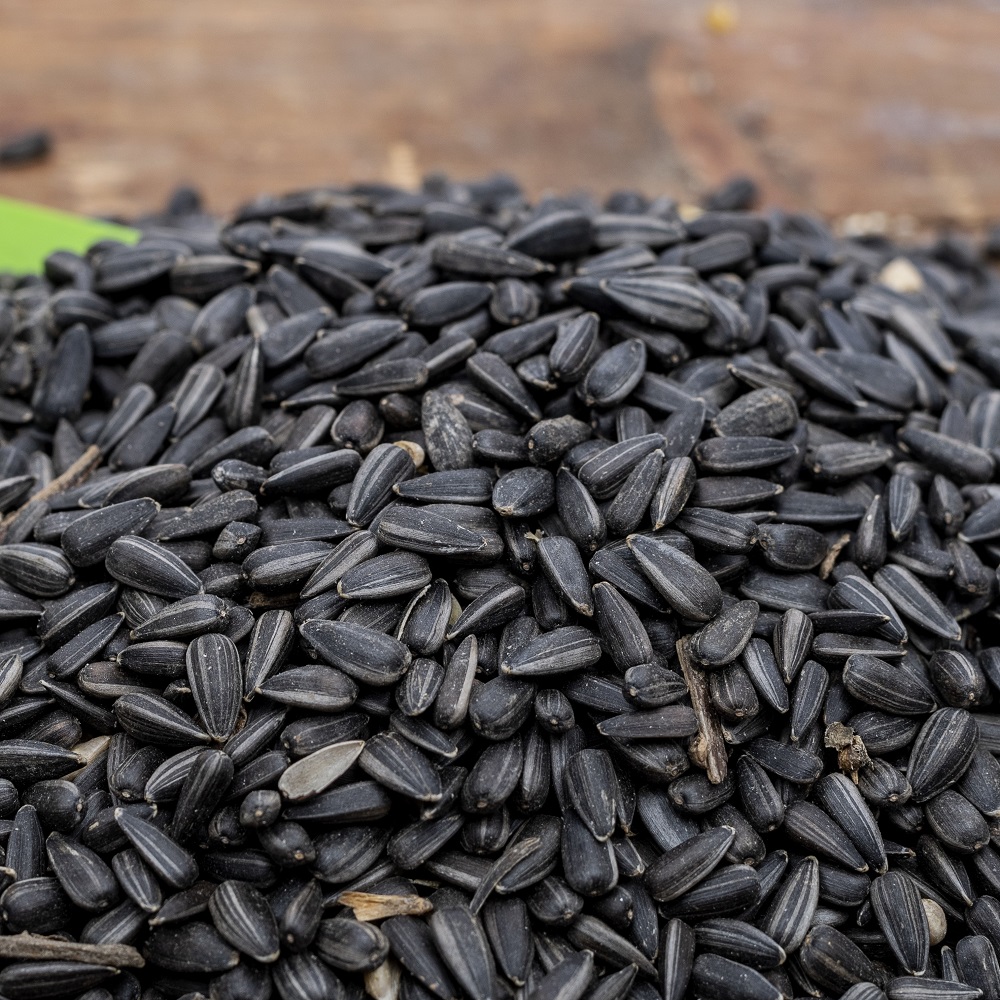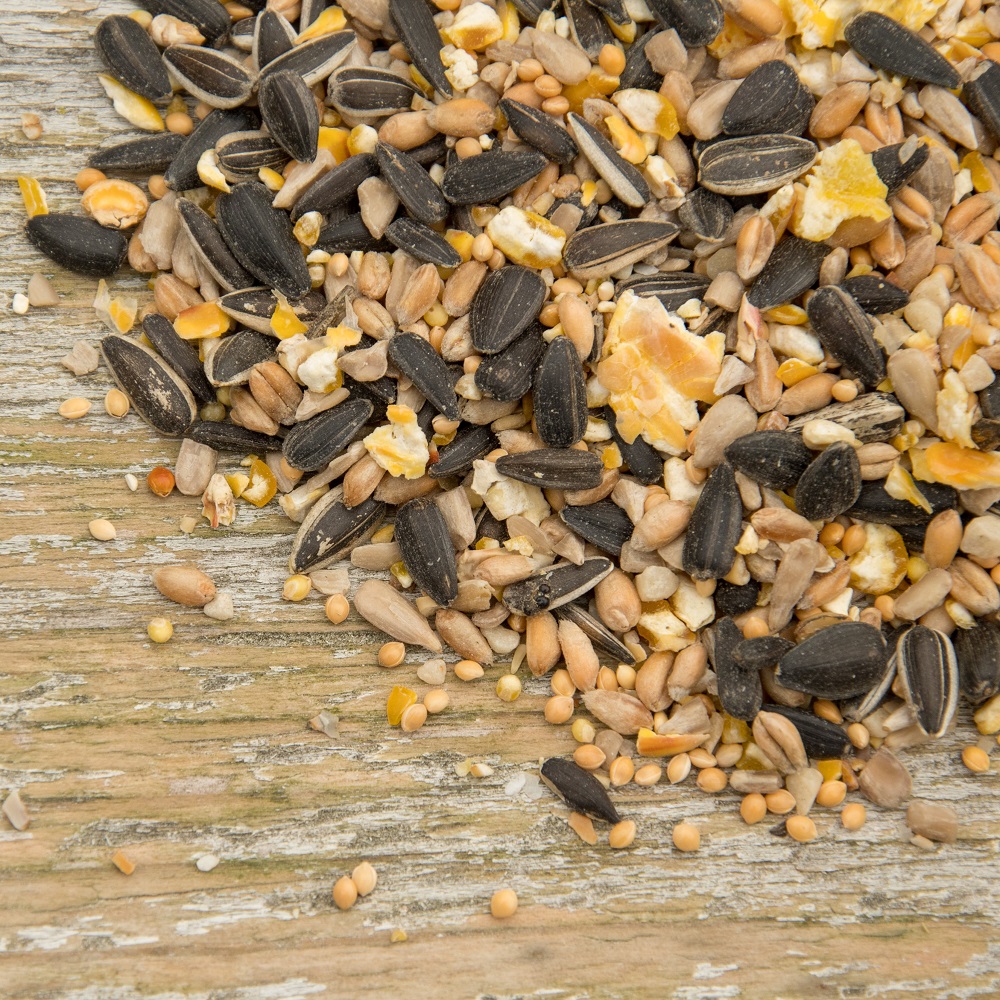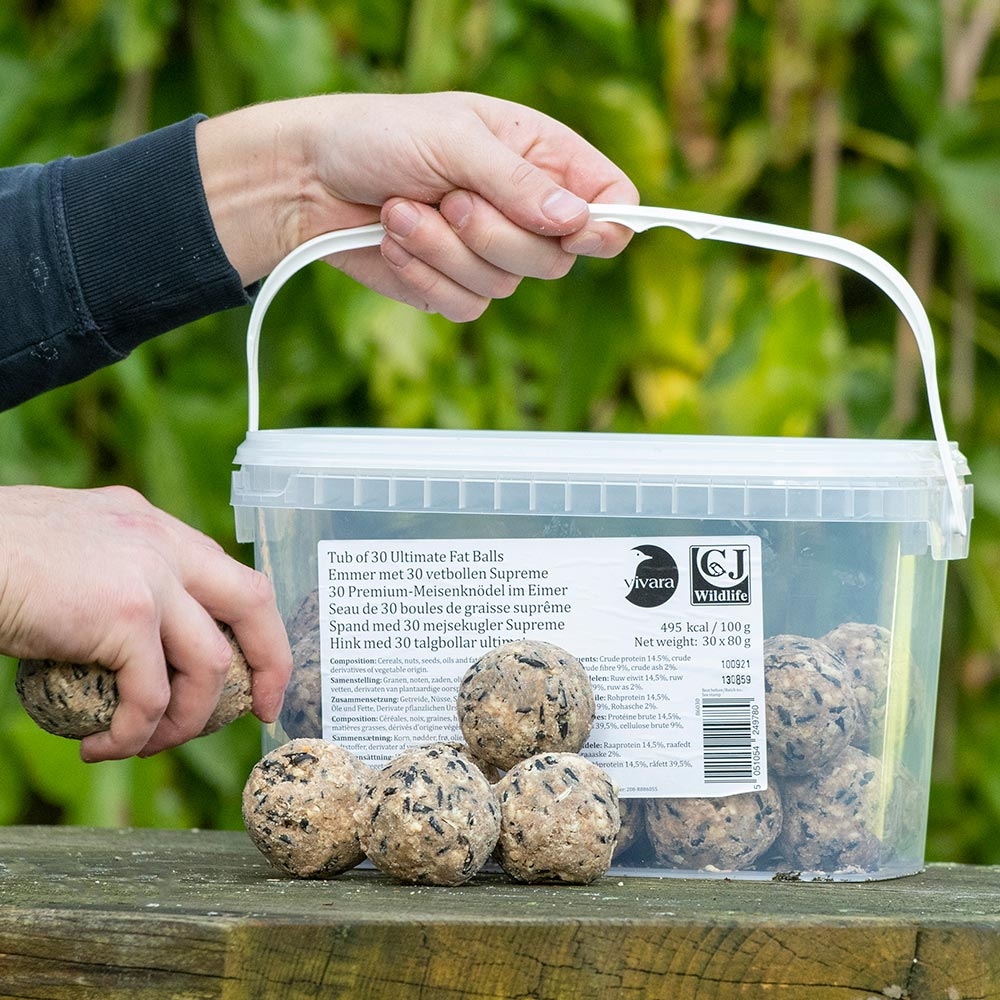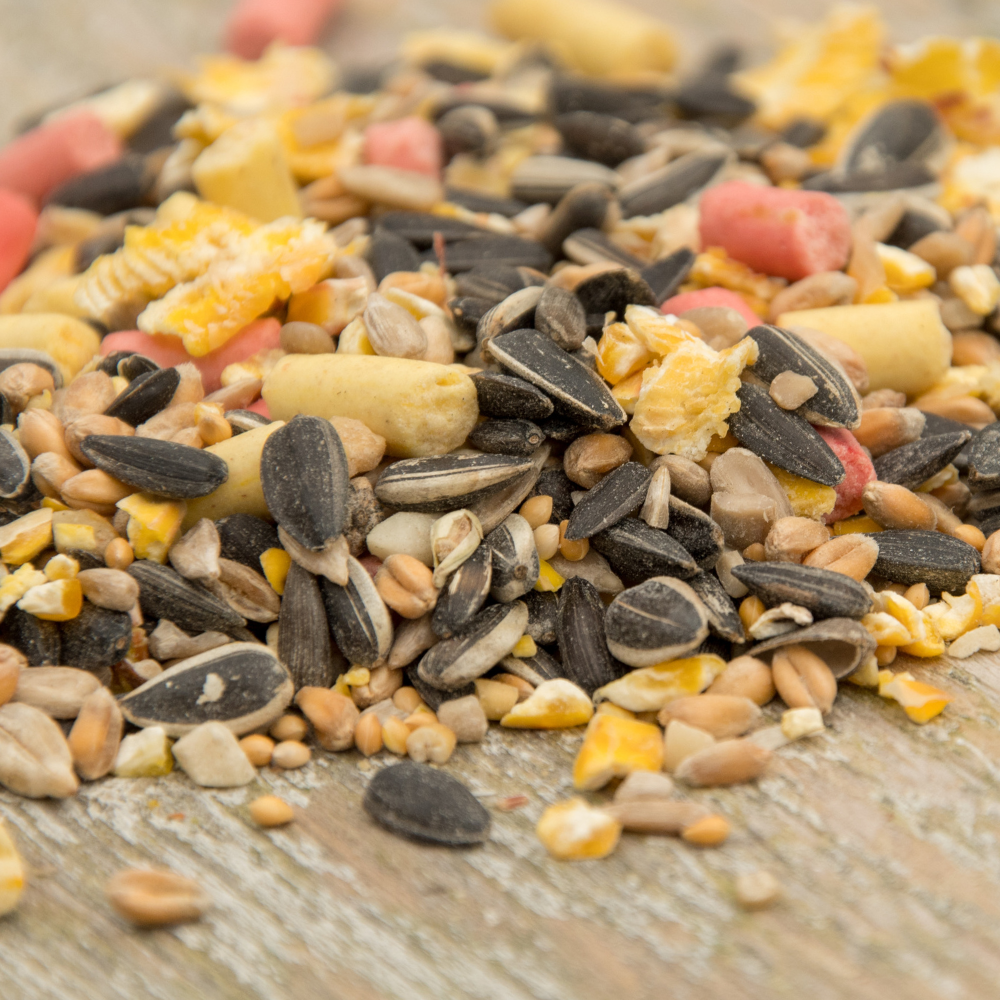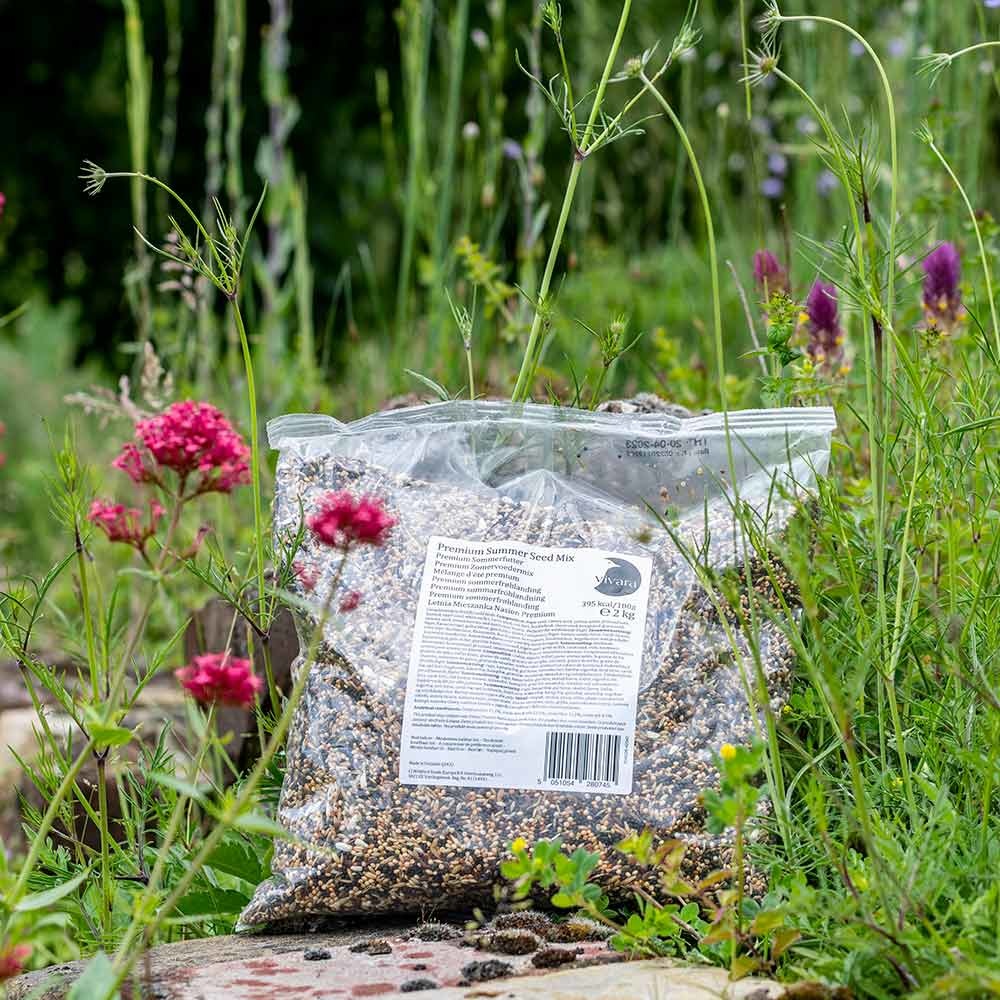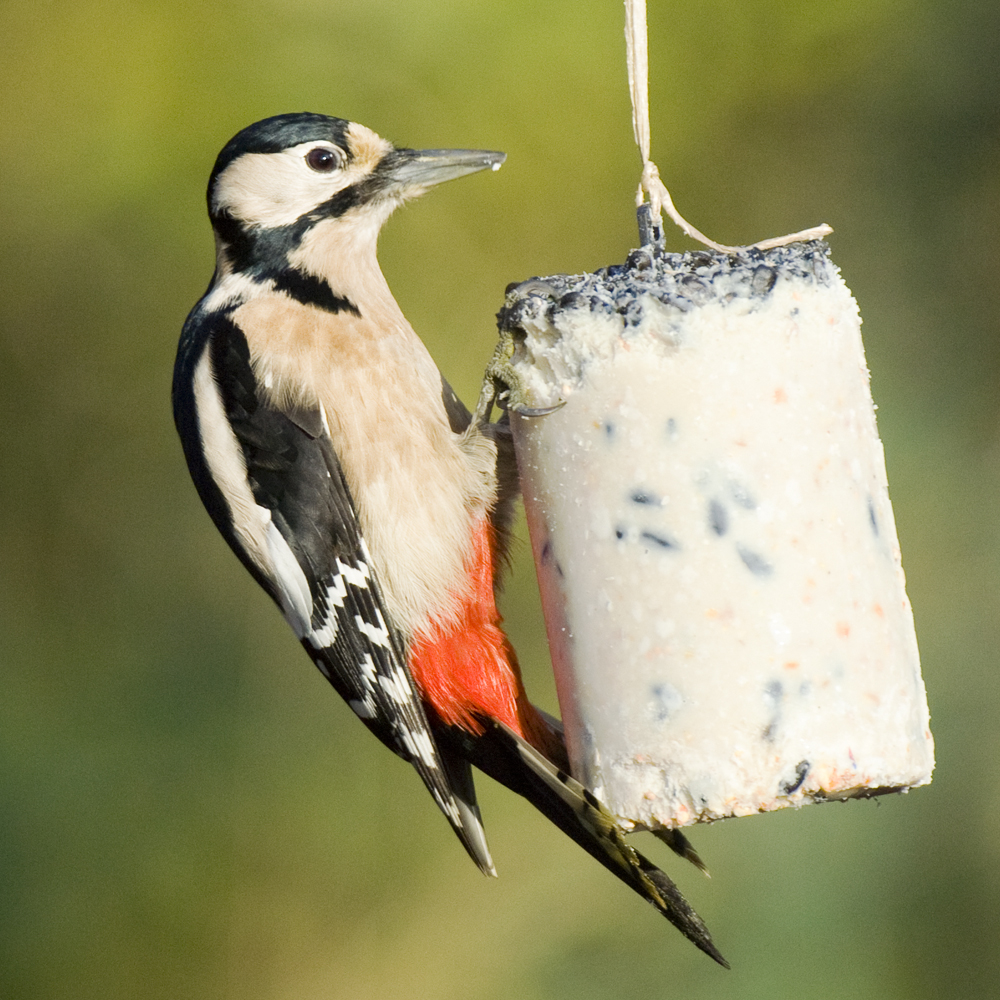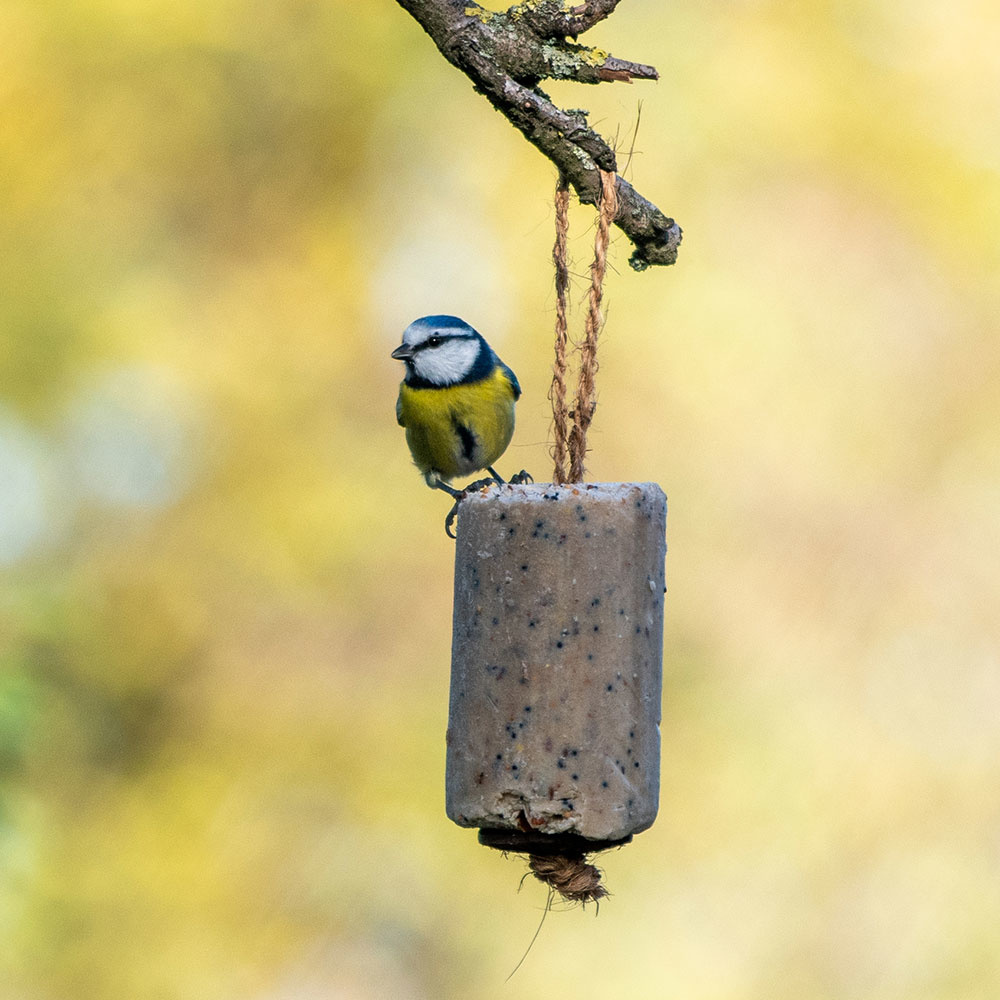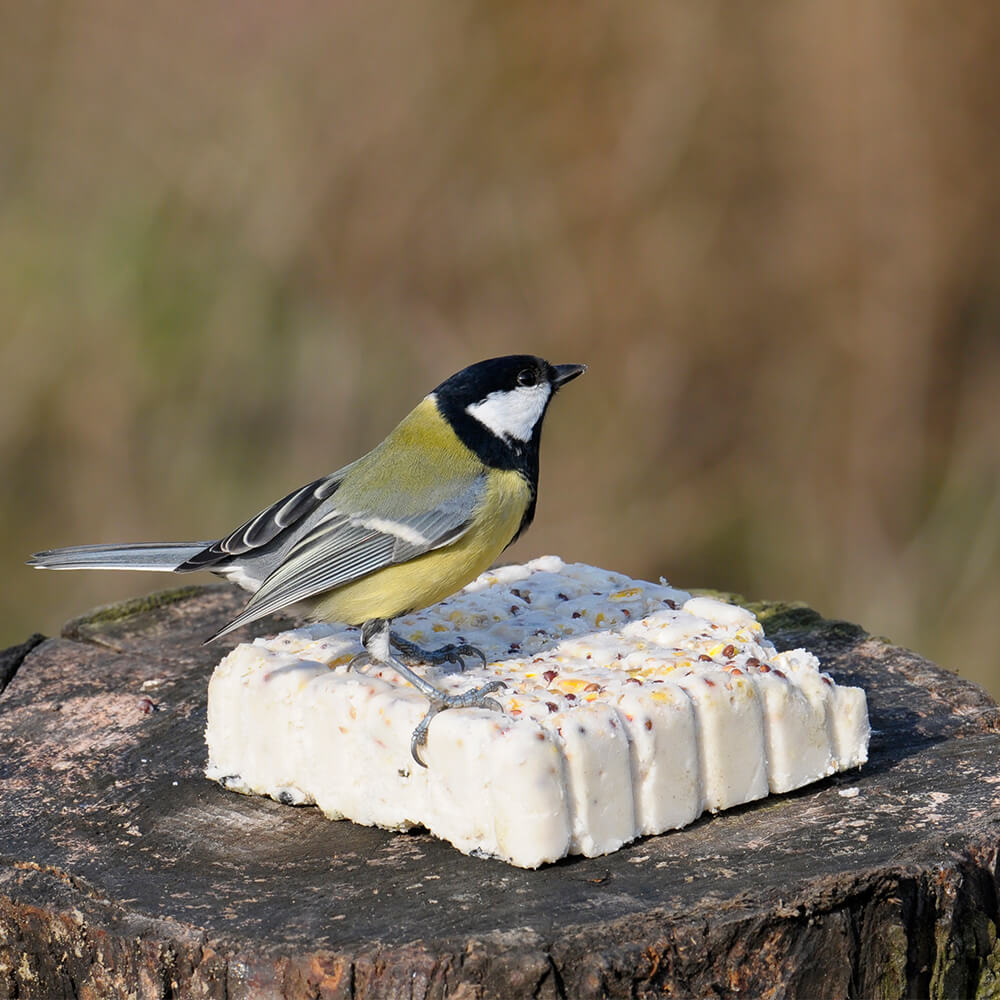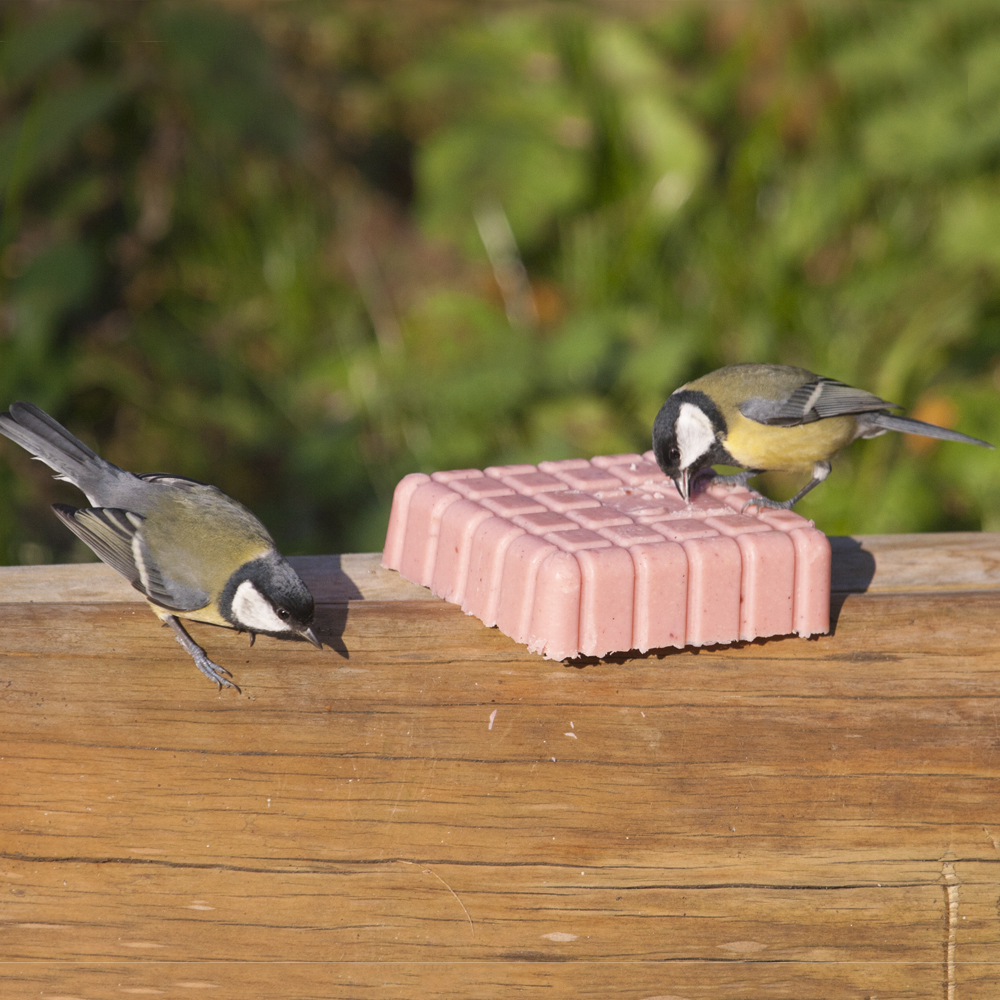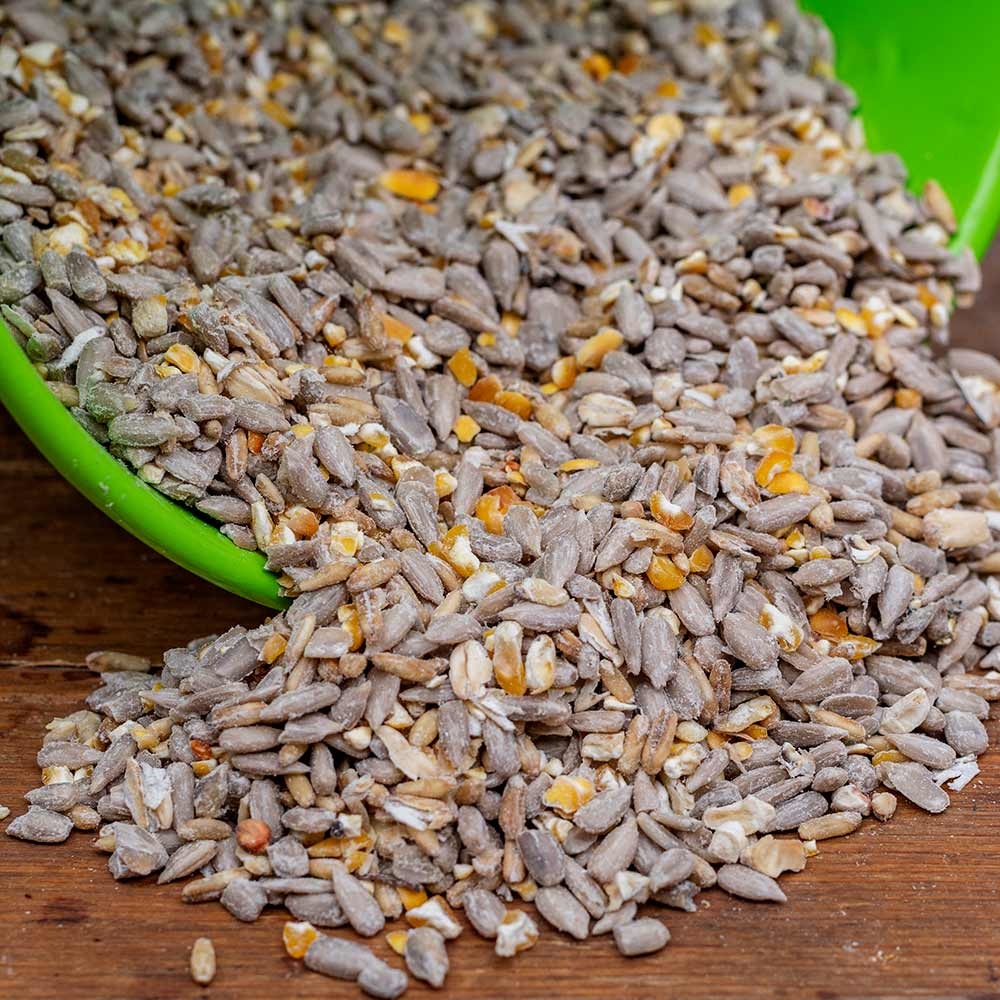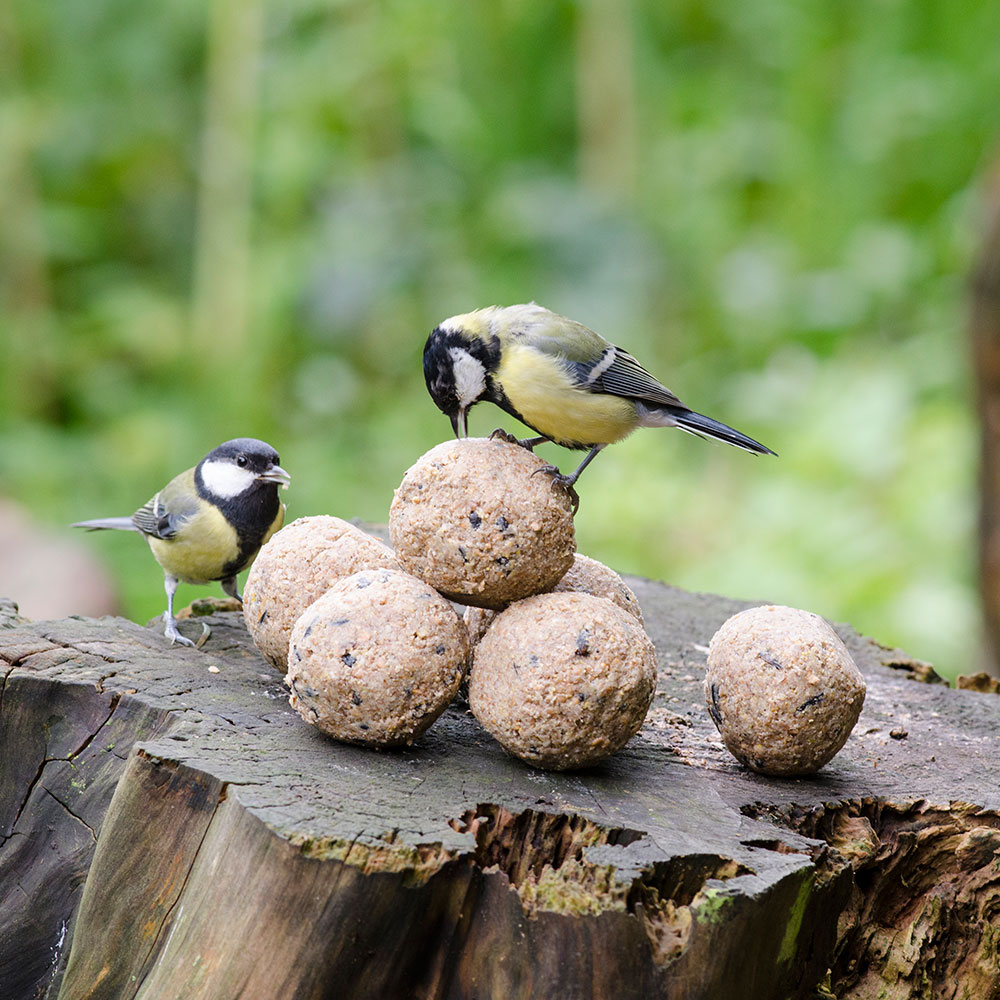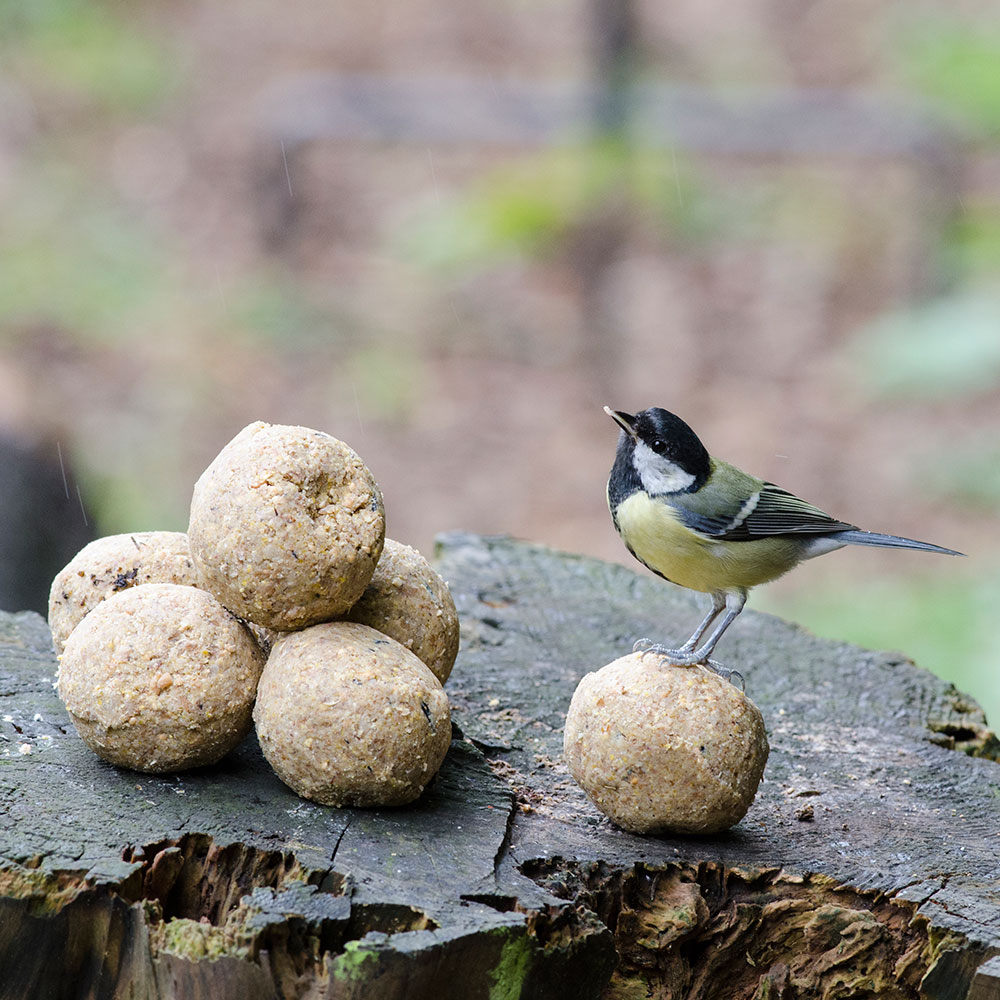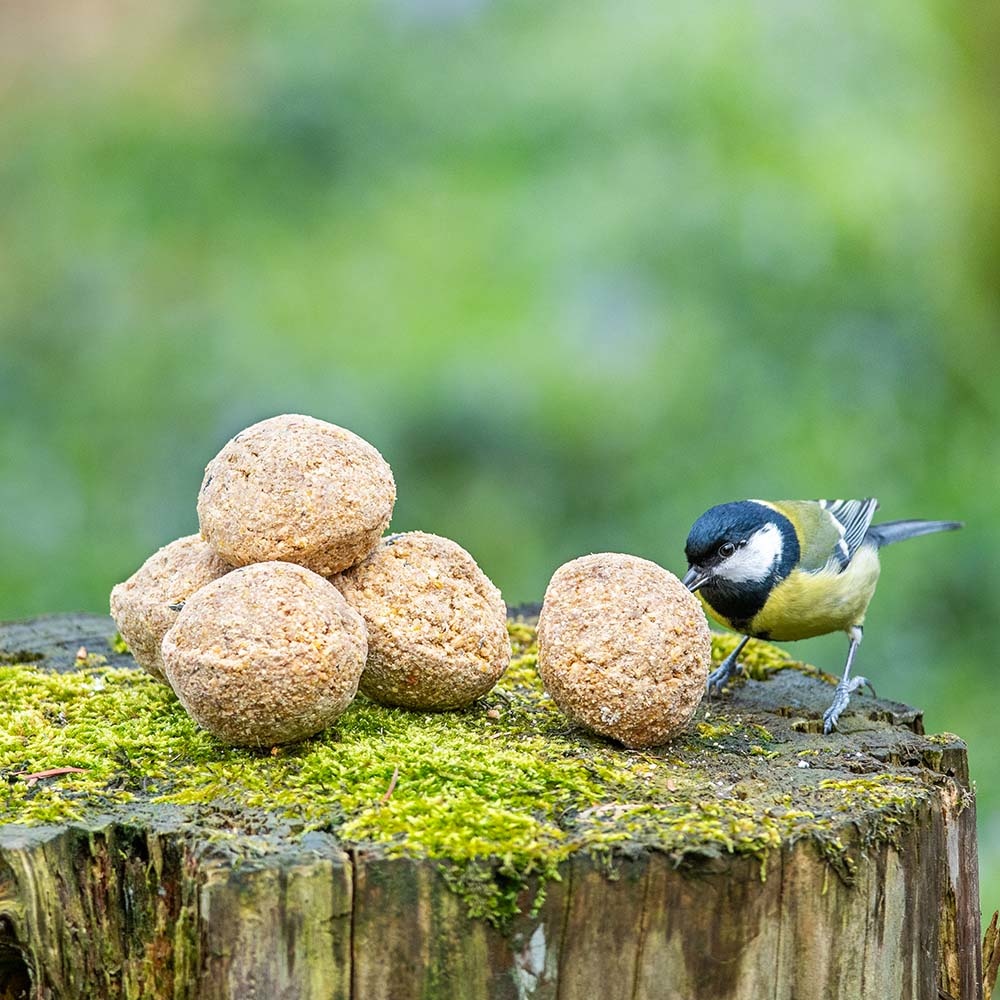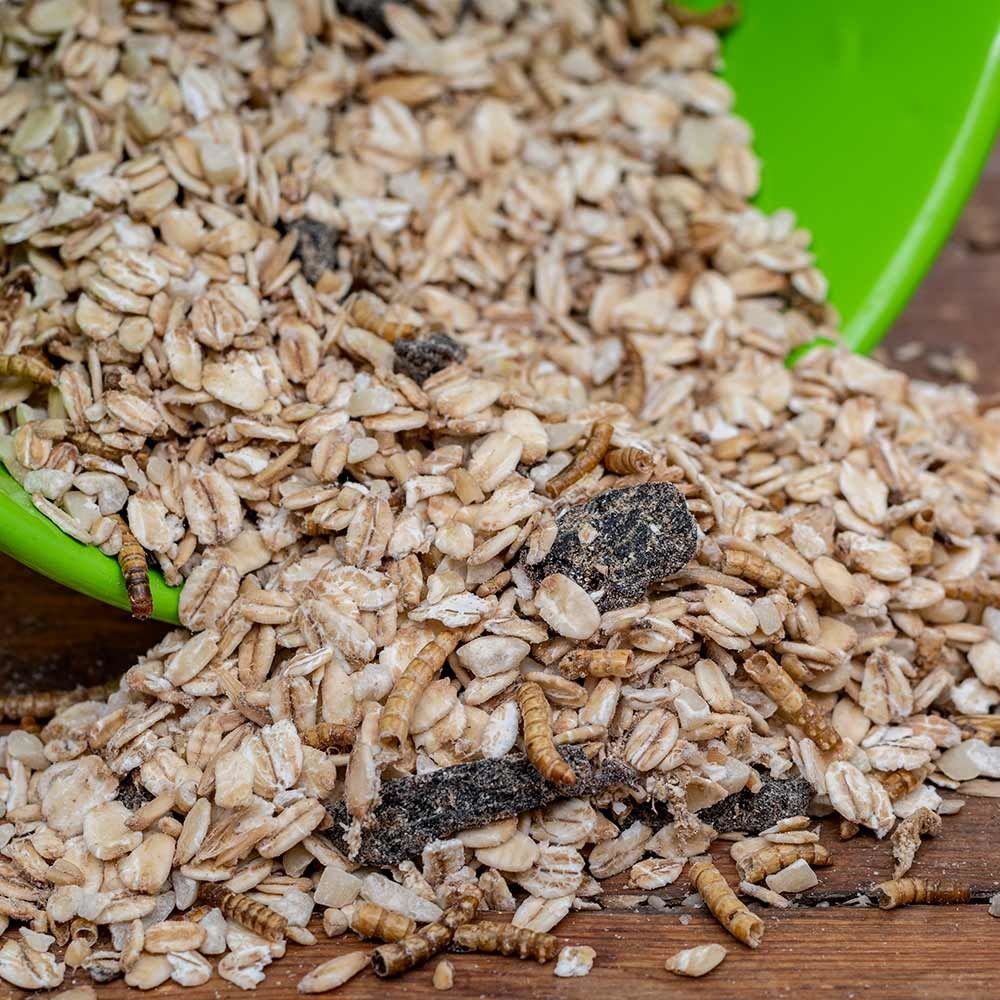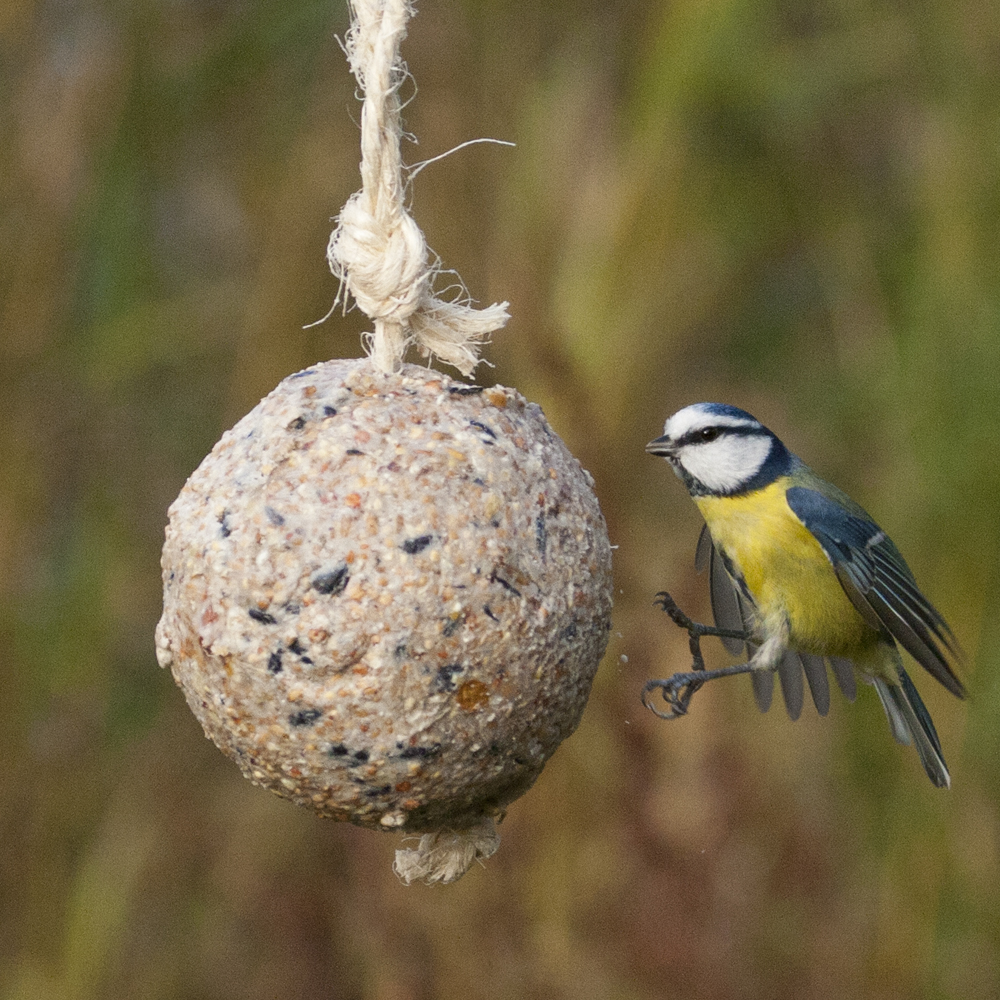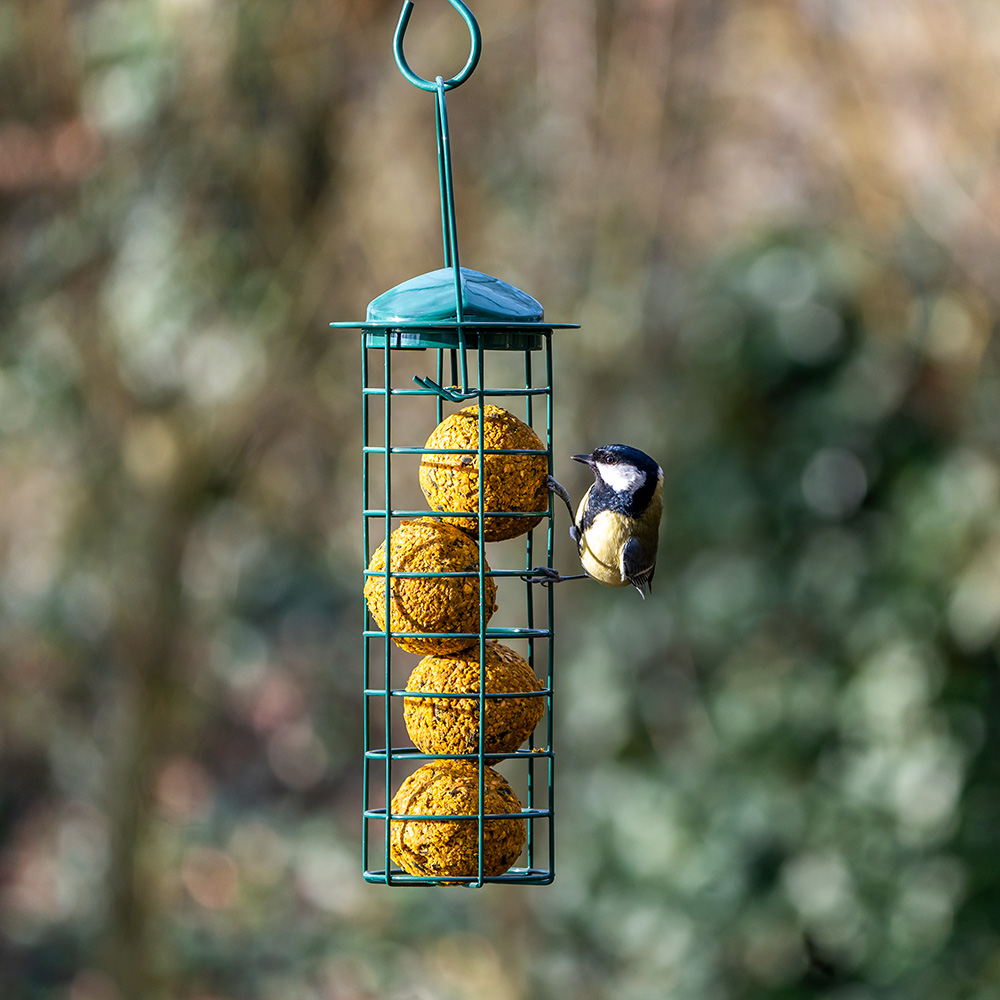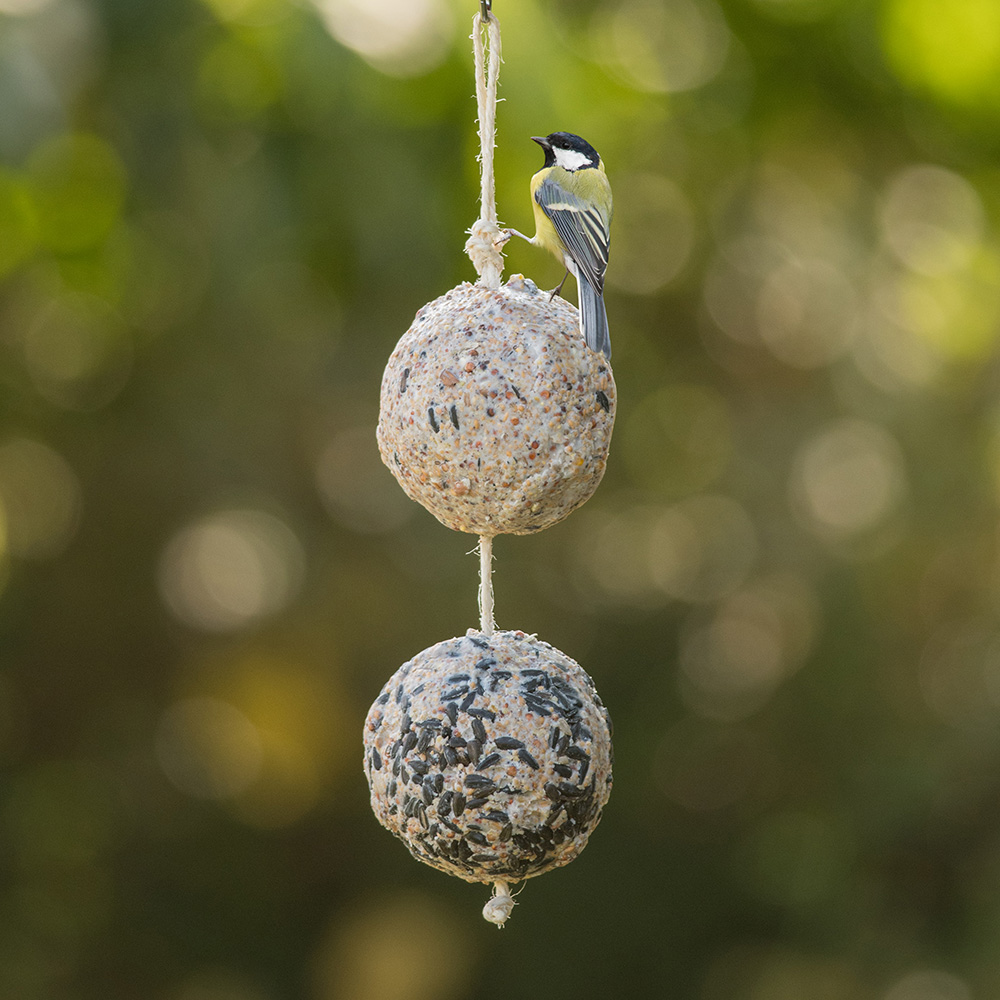Autumn Bird Food
As autumn sets in and the days grow shorter, garden birds start preparing for the colder months ahead. By offering high-quality autumn bird food, you can give your local birds the support they need to stay strong and healthy right through to winter. Read more here.
Why feed birds in autumn?
By offering the right autumn bird food, you can give birds the best chance to thrive during this important transitional season.
Providing high-energy foods in autumn helps resident species prepare for the colder months and gives migrating birds the strength they need for long journeys. With the right food choices, you’ll attract a wide variety of garden birds while supporting their survival as natural food supplies decline.
It’s a common misconception that birds don’t need extra food in autumn because seeds, berries, and insects are still around. In reality, autumn is one of the most important times to feed birds. Here’s why:
- Preparation for winter – Birds need to build up fat reserves to cope with freezing temperatures and food shortages.
- Support for migrating species – Birds such as swallows and warblers rely on a reliable food supply to fuel their long flights.
- Extra nutrition during moulting – Many species moult in autumn, needing extra protein and energy to grow strong winter feathers.
- Establishing a feeding routine – If birds find food in your garden now, they’ll return in winter when food is even scarcer.
Best autumn bird food options
Wondering what to feed birds in autumn? Focus on high-energy, nutrient-rich foods that help them stay healthy while preparing for winter.
High-energy foods
- Suet cakes and fat balls – Packed with calories and easy to eat, perfect for tits, starlings, and woodpeckers.
- Sunflower hearts – High in energy and husk-free, loved by a wide range of garden birds.
- Peanuts – A rich source of fat and protein; always offer aflatoxin-tested peanuts in a mesh feeder.
- Dried mealworms – Protein-rich and ideal for insect-eating birds such as robins and blackbirds.
Nutrient-rich seeds and fruits
- Black sunflower seeds – High in oils and easy for smaller birds to manage.
- Millet – Favoured by sparrows and other ground-feeding birds.
- Nyjer seed – A favourite of finches, including goldfinches and siskins.
- Berries – Hawthorn and rowan berries are natural food sources that help thrushes, blackbirds, and waxwings.
Tips for feeding birds in autumn
- Keep feeders clean – Wash regularly to prevent bacteria and mould.
- Provide fresh water – Essential for drinking and bathing, especially as frosts set in.
- Feed in sheltered spots – Place feeders near hedges or shrubs to offer protection from wind and rain.
- Scatter food on the ground – Robins and blackbirds prefer feeding at ground level.
- Switch gradually to winter foods – As the weather gets colder, increase fat-based foods like suet.
Encourage birds to stay through winter
By feeding birds in autumn, you’re not only supporting them now but also encouraging them to return during the harsher months ahead. Birds remember reliable food sources and will revisit your garden when they need it most.
Support your local birdlife this autumn
With shorter days and colder nights on the way, autumn feeding is essential. By choosing the right foods, you’ll know exactly what to feed birds in cold weather and what to feed robins in cold weather, helping them through the toughest times of year.
Explore our full range of autumn bird food and make your garden a vital feeding spot this season.


